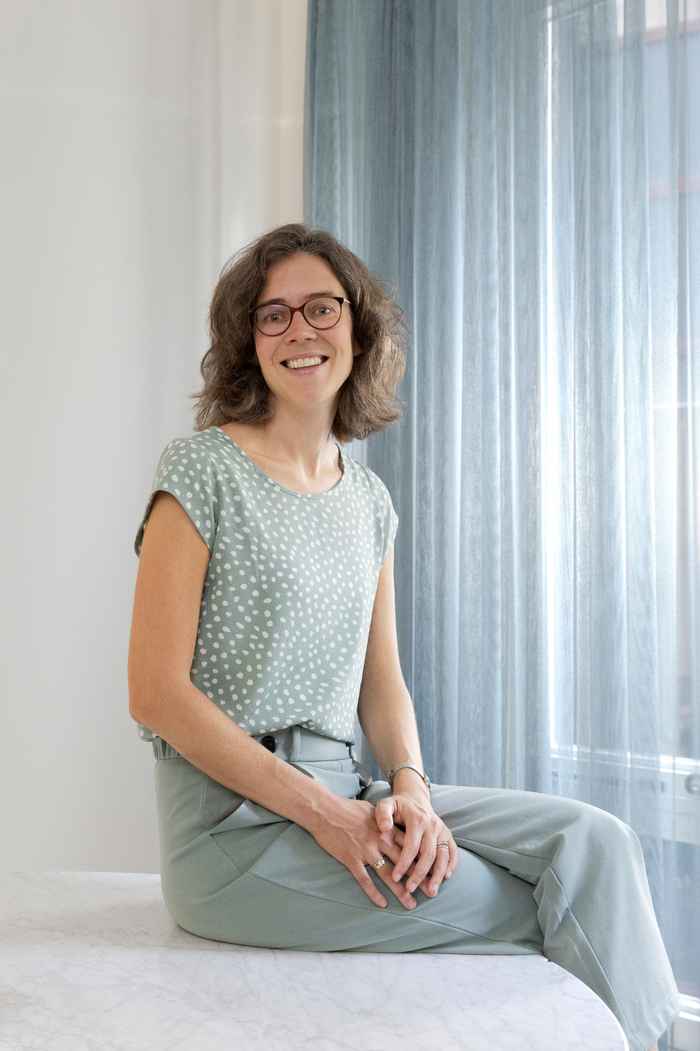From reading for pleasure to literary research: the success of LitLab
20 October 2025

‘The idea for LitLab arose because we saw that literature education in secondary schools was falling short in some areas’, says Dietz. ‘It primarily revolves around reading for pleasure and recognising yourself in books. That is extremely important of course, but it also means that texts are treated in a somewhat simplistic manner. That’s a shame, because literature actually offers you the opportunity to discover new things and think differently about language and culture.
In order to introduce students to the more in-depth side of literature, LitLab developed a research-based teaching method. Dietz describes LitLab as a digital laboratory for literature research, in which students can get a taste for academic research into Dutch literature through digital experimentation. In doing so, attention is devoted to the classics, but also to contemporary novels and pop music.
Reading clubs and samples
Nine years after its establishment, LitLab has become one of the leading projects within Dutch literature education. In that time, it has developed a broad portfolio of teaching materials from which schools are able to choose. ‘In addition to the tests, which introduce students to different research themes and methods, we also have reading clubs’, explains Dietz. ‘In these clubs, participants enter into conversation with each other about a book and they answer in-depth analytical and reader-oriented questions in order to arrive at new perspectives.’
LitLab also offers ‘samples’: fragments from a wide range of sources, such as social media, news articles, song lyrics, poems and novels. With the aid of targeted questions, students learn to read, understand and interpret these texts better. Dietz: ‘This ties in with the demand from the educational practice to bridge the gap between reading comprehension and reading literature.’
LitLab originally focused specifically on the school subject Dutch, but is now expanding to other languages. There are reading clubs and samples available for English and French lessons. There is also a collaboration with the Dutch publisher Noordhoff for assignments accompanying Lijsters and Blackbirds, books that students read for their Dutch and English literature lists.
Community
An important part of LitLab’s success is the close cooperation with teachers. ‘We develop most material in collaboration with the professional field and working teachers’, says Dietz. Ongoing dialogue with hands-on experts is crucial. ‘Initially, we sometimes had overly ambitious plans for lessons, but thanks to the input from teachers, we learned to divide them into smaller, more easily digestible parts.
This has resulted in a large and engaged community of teachers over the years, who make enthusiastic use of the materials or assist with new developments. ‘It is really great to collaborate with teachers who share our educational vision and believe in the power of research-based learning.’
Humanities Venture Lab
In the past year, Dietz and her colleagues have benefited from the expertise of the Humanities Venture Lab, which promotes entrepreneurship within the humanities. ‘At a certain moment, LitLab was doing so well, with so many assignments, that there was too much focus on delivering products. We went from job to job and needed some guidance: how could we professionalise and continue the project more sustainably?’
Our strength lies in the fact that we started the project based on our own ambition. At the same time, that is also a source of vulnerability, because LitLab relies heavily on the efforts of a small core team. Fortunately, we are improving the balance in this regard and we were able to create more paid assignments and expand the editorial team last year. Dietz is very happy, for example, about teaching methodologists from the Interfaculty Teacher Training Programmes joining the editorial team.
In the coming years, Dietz wants to create more space for innovation and research. ‘Thanks in part to the collaboration with the Humanities Venture Lab, we can now look to the future again, make plans and build further on innovative didactics. That is incredibly inspiring.’